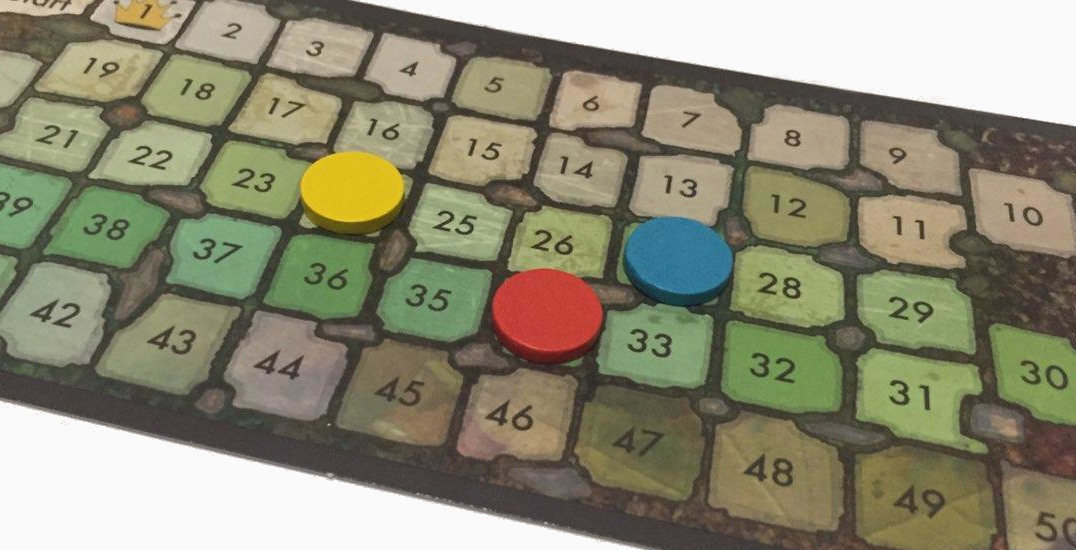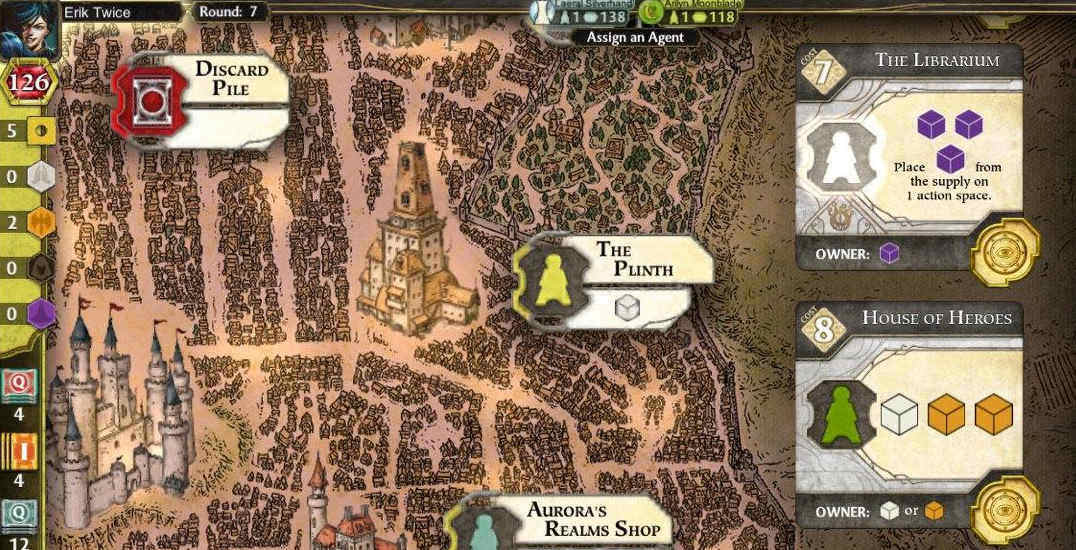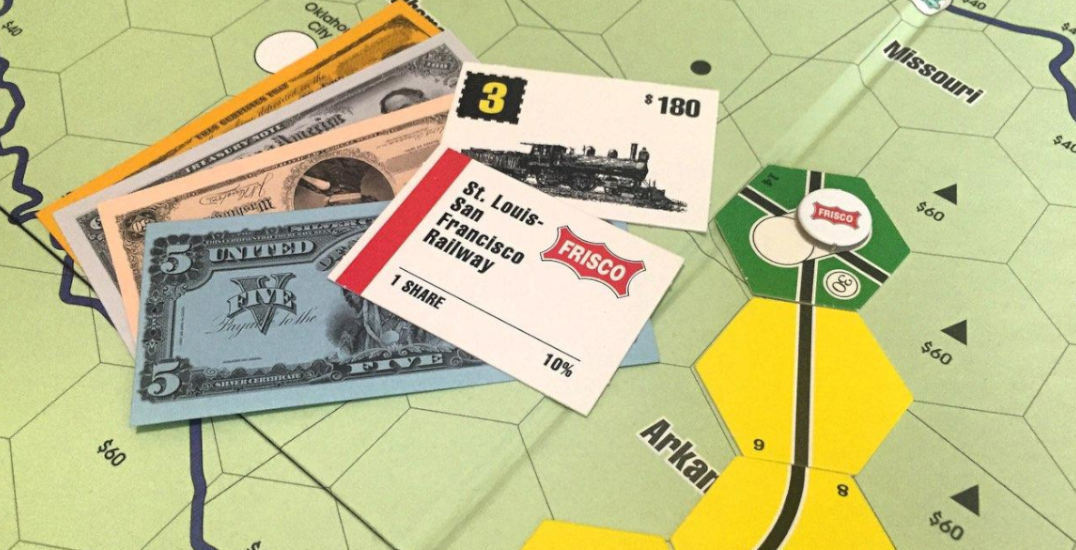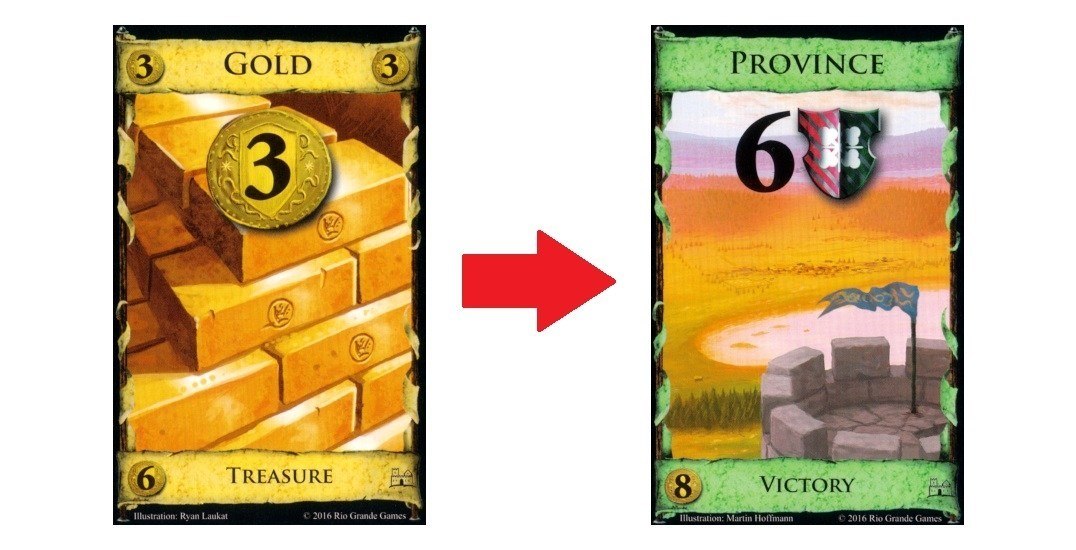
In most games, going straight for victory points is a poor strategy. In this guide, I’ll explain in detail why it’s such a bad idea and why developing your economy first gives much better results.
CAN’T WIN NOW
The fundamental problem with going straight for victory points is that you can’t get enough. In most games, players don’t start with enough resources to win, no matter how efficiently you spend them.
In other words, no matter how well you play or how appealing it might seem, you won’t be able to win without obtaining additional resources. After all, if you could just win by putting all your efforts into points…why do anything else? Only in very dull games is the most straightfoward action the best one. Good ones will actively reward you for taking a more difficult course.
Before embarking on a quest for points, ask yourself: Is the amount I’m gaining actually relevant? If it’s the second turn of the game, is really victory within reach? Don’t guess and run the numbers: If you are trying to win, you need to know if what you are doing will meaningfully advance that goal.

Remember, obtaining victory points has a cost: You spend actions, money and time to score; resources that could be spent elsewhere. You must be sure you want to spend those resources, specially in the early game, when they are most valuable.
MORE OPTIONS
The other problem with focusing on scoring is that points don’t give you more options. You can spend money and other resources to buy cards, fight, construct buildings or make deals with other players. Points give you nothing until the end of the game.
Accumulating resources allows you to adapt the challenges presented by the game. You can react more easily to what other players are doing, as well as to random chance, events or your own lack of planning. If an opportunity rises, having a strong economy will allow you to seize it.
These opportunities even include the possibility of scoring. Having more cards, income or tools available also makes scoring easier. So focusing on your economy is even good from a scoring view-point.

Going straight for points is like trying to fight with a big bag of gold on one hand. Sure, if you make it, you’ll do very well for yourself. But you are not going to make it without both of your hands. What will happen is that someone is going to beat you, everytime, and you’ll never enjoy your gold.
RESOURCES CREATE RESOURCES
Most games are inflationary. That is, the number of available resources rises as the game progresses and the more resources you have the easier it is to obtain them. Developing your economy is not a one-time deal, it’s a recurring benefit that will pay several times over the course of a game.
For example, imagine you are playing a train game and spend money on a share. You not only will earn dividends, but you’ll be able to reinvest those earnings on even more shares, that then produce even more money. I’ve played games in which you start with four hundred bucks and end up with ten thousand. Reinvestment is key.

Keep in mind that reinvestment can take many forms. It doesn’t have to be money for money. Rather, it can be money on troops, to capture mines and fertile ground. It can be cards, which allow you to develop your economy in other ways. Often, sustaining your economy in one area will allow to develop it further in other arenas.
THE SWITCH
Still, being the richest player at the table doesn’t mean you are winning. At the end of the game, if the victor is decided by whoever has the most victory points, then you should get those victory points. Winning should not be your immediate goal, but it should always be in your mind.
In practice, players should “switch” from focusing on their economy to scoring at some point in the game. This maximizes the value gotten from both, as you get all the economic advantages when they are most useful and then have all the points for the end.
Knowing when to make this switch is difficult and varies from game to game. It even changes from play to play and depending on what’s being done by your opponents. What is important is knowing you’ll eventually have to.

Don’t be afraid to run the numbers. Keep in mind when a game is going to end. For example, Terraforming Mars tends to go for 10 to 12 generations. Brass ends after cards runs out and two are played each turn. If the player to your left is very close to winning, don’t develop your economy, stop him instead.
EXCEPTIONS
Of course, there are many exceptions to this rule. Good play will always be more complex and nuanced than a single article is able to cover. Some games actively fight against standard strategies and make the usual strategies harder. And, of course, many games simply don’t feature an economy. You can’t draw more cards in Bridge.
Pay attention to how scoring works. Games in which you can gain points anytime are much kinder to economic development than games with few opportunities to score. Sometimes, designers make early scoring cheaper or more potent to give players a choice between economy and points. You can pursue those points, but do it with care.
Don’t forget that the value of points and economy is time-sensitive. If a game doesn’t have a fixed ending point, players might be able to play slower or faster to make certain strategies better. Developing your economy sounds fun until your good friend Erik spends his resources on guns and comes along for a visit. Just remember, scoring is your ultimate goal, but not always your most immediate one.




Check out Puerto Rico. There are discussions there that at the start money is more important. In the mid game the focus changes and victory point become equally important. At the end money is nothing and points are what matters. Deciding when these changes occur is what the good players need to know.
I wonder what game this is you’re offering strategy for.
It’s broad strategic advice applicable to a large number of games!